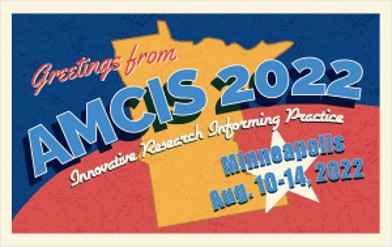LACAIS - Spanish, Portuguese and Latin America
Loading...
Paper Type
Complete
Paper Number
1460
Description
Los términos posverdad y noticias falsas han sido estudiados por numerosos autores, usando diversos enfoques y metodologías. En este contexto, buscamos consolidar todo lo publicado en Scopus sobre el tema, proponiendo los siguientes objetivos: identificar los temas más frecuentes por año, relacionados con posverdad y noticias falsas; y clasificar los temas obtenidos, teniendo en cuenta su evolución a lo largo de los años. La metodología empleada consistió en aplicar el modelado de temas, que usa un algoritmo de aprendizaje no supervisado, extrayendo 9 temas importantes, los que posteriormente fueron clasificados en dos bloques: proliferación de noticias falsas en contexto político, público y periodístico; y, desinformación sin intención e intencional, y como podemos combatirla. Las contribuciones del estudio son: la metodología que puede ser replicada en otros contextos; y los temas y clasificaciones obtenidos que pueden servir como punto de partida para futuras investigaciones sobre posverdad y noticias falsas. / The terms post-truth and fake news have been studied by numerous authors, using various approaches and methodologies. In this context, we seek to consolidate everything published in Scopus on the subject, proposing the following objectives: identify the most frequent topics per year, related to post-truth and fake news; and classify the topics obtained, taking into account their evolution over the years. The methodology used consisted of applying topic modeling, which uses an unsupervised learning algorithm, extracting 9 important topics, which were later classified into two blocks: proliferation of fake news in political, public and journalistic contexts; and, misinformation and disinformation, and how we can combat it. The contributions of the study are: the methodology that can be replicated in other contexts; and the topics and classifications obtained that can serve as a starting point for future research on post-truth and fake news.
Recommended Citation
Bohorquez-Lopez, Victor W. and Gómez-Burns, Ana Elizabeth, "Analizando artículos en Scopus sobre posverdad y noticias falsas con un algoritmo de aprendizaje no supervisado / Analyzing Scopus articles on post-truth and fake news with an unsupervised learning algorithm" (2022). AMCIS 2022 Proceedings. 5.
https://aisel.aisnet.org/amcis2022/lacais/lacais/5
Analizando artículos en Scopus sobre posverdad y noticias falsas con un algoritmo de aprendizaje no supervisado / Analyzing Scopus articles on post-truth and fake news with an unsupervised learning algorithm
Los términos posverdad y noticias falsas han sido estudiados por numerosos autores, usando diversos enfoques y metodologías. En este contexto, buscamos consolidar todo lo publicado en Scopus sobre el tema, proponiendo los siguientes objetivos: identificar los temas más frecuentes por año, relacionados con posverdad y noticias falsas; y clasificar los temas obtenidos, teniendo en cuenta su evolución a lo largo de los años. La metodología empleada consistió en aplicar el modelado de temas, que usa un algoritmo de aprendizaje no supervisado, extrayendo 9 temas importantes, los que posteriormente fueron clasificados en dos bloques: proliferación de noticias falsas en contexto político, público y periodístico; y, desinformación sin intención e intencional, y como podemos combatirla. Las contribuciones del estudio son: la metodología que puede ser replicada en otros contextos; y los temas y clasificaciones obtenidos que pueden servir como punto de partida para futuras investigaciones sobre posverdad y noticias falsas. / The terms post-truth and fake news have been studied by numerous authors, using various approaches and methodologies. In this context, we seek to consolidate everything published in Scopus on the subject, proposing the following objectives: identify the most frequent topics per year, related to post-truth and fake news; and classify the topics obtained, taking into account their evolution over the years. The methodology used consisted of applying topic modeling, which uses an unsupervised learning algorithm, extracting 9 important topics, which were later classified into two blocks: proliferation of fake news in political, public and journalistic contexts; and, misinformation and disinformation, and how we can combat it. The contributions of the study are: the methodology that can be replicated in other contexts; and the topics and classifications obtained that can serve as a starting point for future research on post-truth and fake news.
When commenting on articles, please be friendly, welcoming, respectful and abide by the AIS eLibrary Discussion Thread Code of Conduct posted here.



Comments
LACAIS Chapter